Dean’s Read 2024
Outcasts United: An American Town, a Refugee Team, and One Woman’s Quest to Make a Difference
By: Warren St. John, 2009
All current RSC faculty, staff, and students can click the below link to read the book.
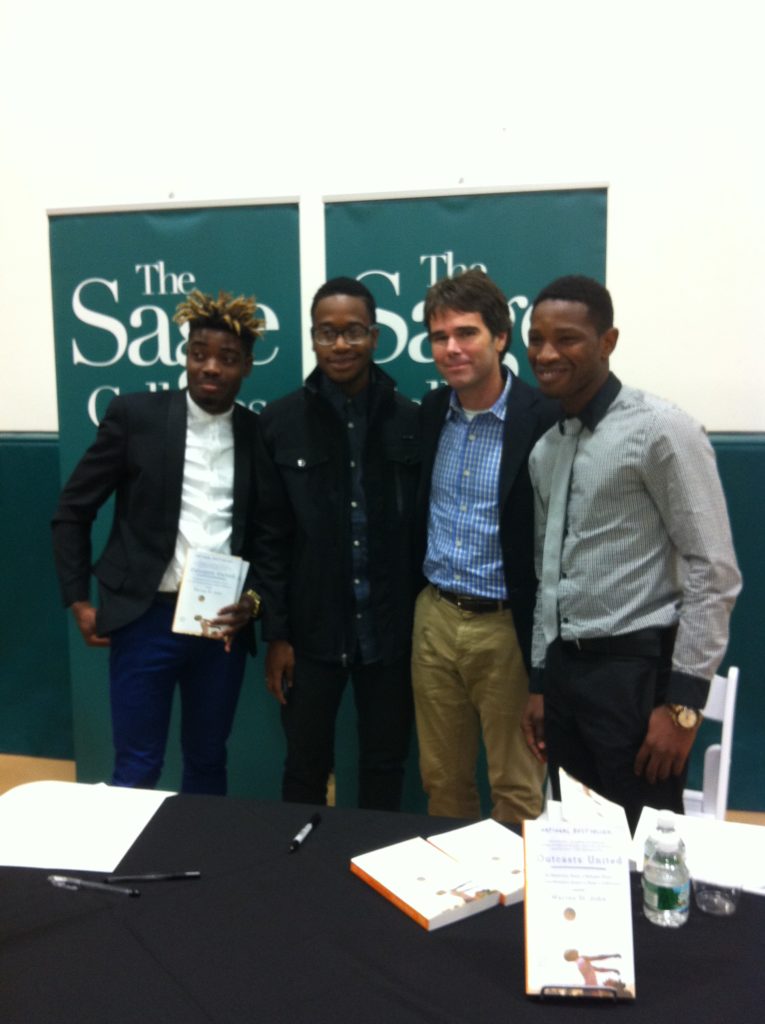
A Message from Dean Andrea Rehn
On behalf of the faculty, staff, and students at Russell Sage, I want to welcome you! This summer, it is time to join the Sage community by reading the Dean’s Community Read. The Dean’s Read is a book I share with all incoming students, as well as the faculty and staff you will meet here. When you arrive at Sage, you will all have this book in common. There will be events and assignments related to this book, so be sure to bring it with you. The theme that unites this year’s events is “Engaging Across Difference.”
This year’s Dean’s Read is a nonfiction account of how an individual can make a difference, how communities both resist and adapt to new residents, and how sport can connect people together. Outcasts United, by Warren St. John, is the story of a woman who dedicates herself to helping others by spearheading the creation of a youth soccer program for refugees in the suburbs of Atlanta. The coach and all the players are immigrants and refugees, new Americans who are united by their shared love of soccer. As they play through trauma and triumph, the players, their coach, and the surrounding community struggle with the challenges of commitment to each other, the dynamics of in group bias, racism, poverty, religious differences, and the many cultural complexities and economic transformations that highly-diverse communities experience. Each chapter focuses on a different aspect of the topic: some chapters tell the stories of how and why particular families immigrated to the United States; other chapters describe the ways that churches, businesses, and city government impeded or adapted to the needs of new residents; and some focus on the coach and her efforts to support her players both on and off the fields.
As you read, think about times in your life when you’ve felt like an outsider. What helped you begin to feel a sense of belonging? Was there a person who reached out to you, as Coach Luma does with her players? Or did you discover a shared interest that formed the basis of new friendships? Have you had an experience where you helped someone else and found yourself changed by doing so? As Warren St. James puts it, “belonging is not a zero-sum game” (184). I invite you, as you read this book, to consider how you might choose to connect with others who are different from yourself. In fact, engaging across differences is so important that it is a key theme for your first courses in college.
Sincerely,
Andrea Rehn, Ph.D.
Dean
Watch Video Resources
Dean’s Read Events 2024
Theme: Engaging Across Differences
Summer Events
- May 14, 9:40 a.m. Book Launch
- June 20, 2024 World Refugee Day Celebration
- RSC hosts the Albany International Center Middle School
10 a.m. to 1 p.m. and 4 to 7 p.m., Kahl Campus Center and Opalka Gallery
Tawana Davis, [email protected]
Kelly Smith, [email protected]
In partnership with the Thrive@Russell Sage initiative
- RSC hosts the Albany International Center Middle School
- June 6 at 12:30 p.m. (Shea Library Room 201, Troy Campus): Lunch and Learn
- Dan Butterworth, the Executive Director of RISSE (Refugee and Immigrant Support Services of Albany)
- July 11 at Noon: (Shea Library, Troy campus) Lunch and Learn
- Steve Leibo, RSC professor emeritus, Lunch and Learn on the global and domestic challenges that are at the core of stories recounted in this year’s Dean’s Read.
- July 30 at Noon: (Kahl Campus Center 224) Lunch and Learn
- Round table discussion with Albany Refugee & Immigrant Youth Soccer coaches.
Fall events
- Thursday, September 19, 5-6:30 p.m., Bush Memorial, Troy campus
- Dr. Diya Abdo on Every Campus a Refuge in partnership with Women’s Institute and ECAR conference
- Wednesday, September 25
- Dean’s Read Lunch and Learn, Noon-2 p.m., (Armory, Albany campus)
- Women’s soccer home game
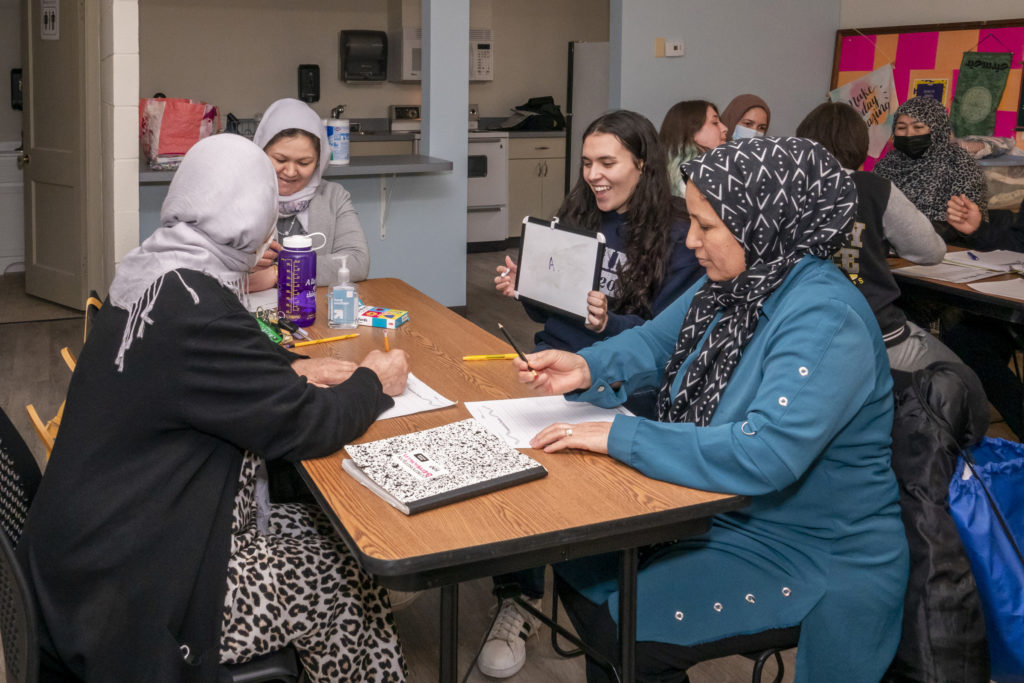
Continuing Ways to Be Involved
Intercultural Cafe
- Every Monday, 4 to 6 p.m. in Spirituality Center (Troy campus), Nana Owusu-ofiro, [email protected]
- Every Thursday 4 to 6 p.m. in West Hall (Albany campus), Noora Ahmed, [email protected]
Past Dean’s Reads
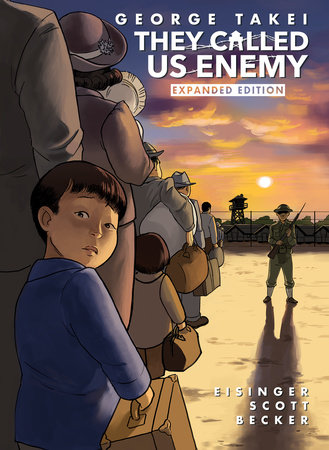
Dean’s Read 2023: They Called Us Enemy
They Called Us Enemy is a graphic memoir by George Takei, an author, activist, and actor best known for his role as Hikaru Sulu on Star Trek. Created in partnership with Justin Eisinger, Steven Scott, and Harmony Becker, the book is a firsthand account of Takei’s childhood, years of which were spent in a Japanese American internment camp during World War II.
The memoir depicts his life “behind barbed wire, the joys and terrors of growing up under legalized racism, his mother’s hard choices, his father’s faith in democracy, and the way those experiences planted the seeds for his astonishing future.”
Check out They Called Us Enemy Online: Borrow a digital copy using the Libby app. You will need to log in with your Sage username and password.
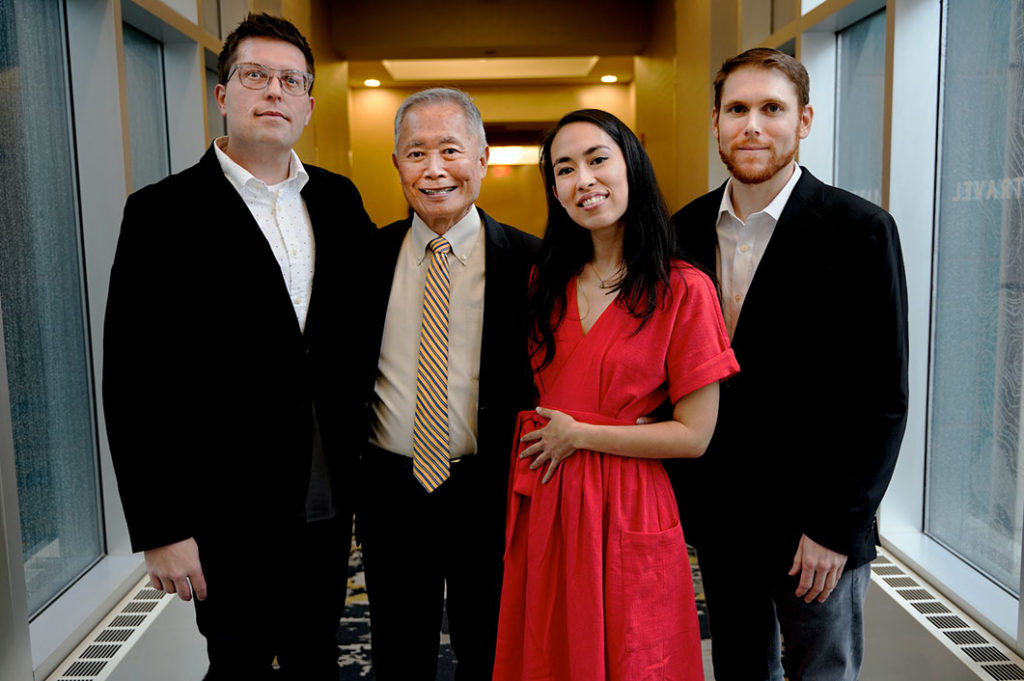
Takei’s book is important for many reasons. He tells a crucial story of United States history and helps readers understand how those events affected many people, then and now. His family’s story is one of trauma but also persistence and resilience, as they found ways to stay together and help each other, and eventually to help the rest of the country recognize the profound injustice they suffered. This is a story of both how democracy sometimes fails, and how citizens can speak up for the truth and for each other. Courage, love, justice, democracy, truth – all these themes are present, as well as bullying, racism, and fear. The form of the book, a graphic memoir, might remind you of Art Spiegelman’s great graphic novel of the Holocaust, Maus, which I encourage you to read as well.
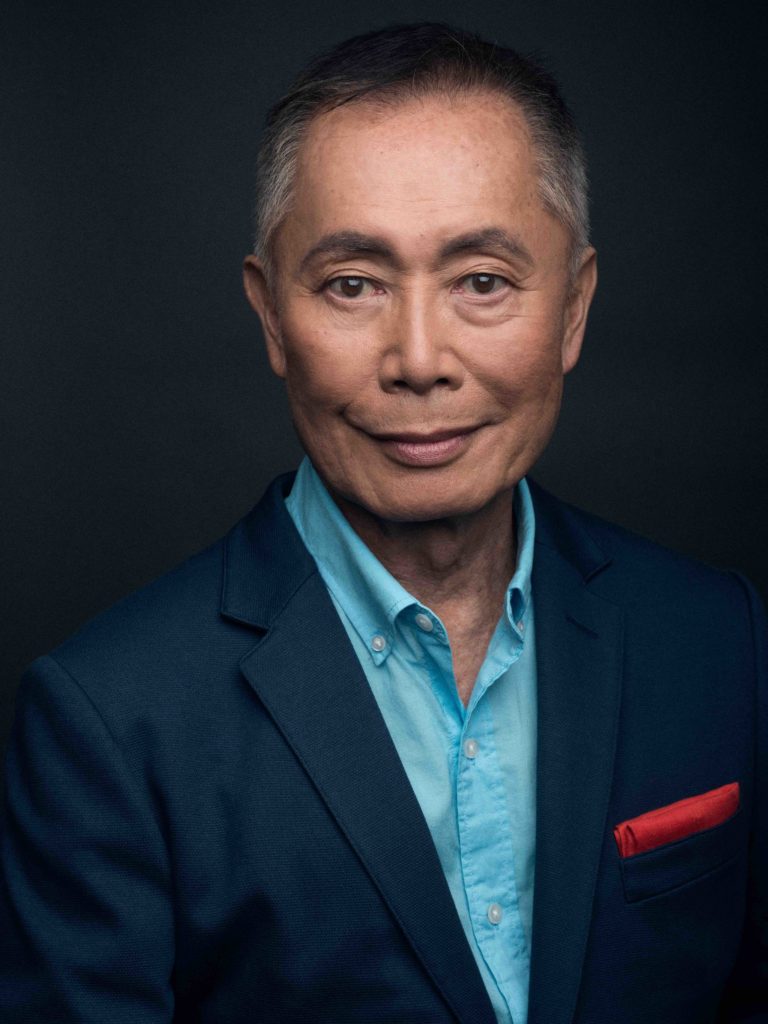
“It was those after-dinner talks with my father that informed so much of my worldview … Together we can initiate change in Los Angeles … and instilled in me a desire to share our story with as many people as possible.”
George Takei, from “They Called Us Enemy”
The Importance of Storytelling …
“Never again will a single story be told as though it’s the only one. “
“Many stories matter. Stories have been used to dispossess and to malign. But stories can also be used to empower, and to humanize. Stories can break the dignity of a people. But stories can also repair that broken dignity.”


